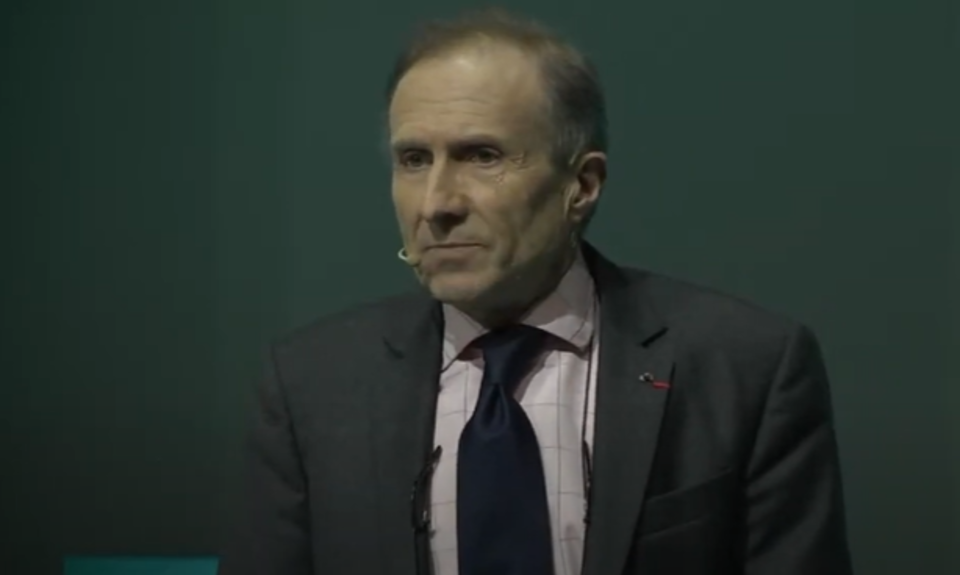Out with classic financial reporting, in with integrated reporting! This new style of reporting goes far beyond the figures. It explains the company’s current and future strategy, taking into account both financial and non-financial performance and drawing them together. Business strategy consultant Philippe Peuch-Lestrade is a pioneer of this approach, which he has been advocating since the 1990s.
You were one of the forefathers of integrated thinking in France. How did that come about?
After I graduated, I joined Arthur Andersen (editor’s note: now EY), one of the big audit and consulting firms. Gradually, I realised that there was something business leaders were neglecting: the environment. Consequently, I set up a dedicated department within the firm, which has since expanded to cover CSR and ESG. And I started spreading the word.
I imagine that it was quite hard to get people to listen in the early 90s?
People didn’t understand why I was talking about it. And that went for both the public and the private sectors. But as I was a managing partner at Arthur Andersen, they assumed there must be something in it, and little by little, I convinced them. Environment teams were growing up all over the world. Later, they expanded to cover CSR. Initially though, they started out in the wrong direction, focusing on philanthropy and communications, which ended up being termed “greenwashing”. But although it wasn’t quite on the right track, the train had started to gather momentum.
And what was the “train” pulling behind it?
We had to hook up carriages full of passengers, to take along with us as many people as we could, focusing on a wide range of topics that we initially called non-financial or extra-financial. A few years later, within the International Integrated Reporting Council (IIRC), we started calling them pre-financial.
We weren’t debating the performance of companies, but the conditions by which that performance was judged. A number of players from a wide range of contexts – academics, major non-profits, leading companies, professional bodies like the IOSCO and Transparency International, and international institutions like the World Bank – joined forces at the initiative of the future King of England, then Prince Charles. Without a catalyst, nothing happens. This generated the impact that was needed to build a conceptual framework setting out the conditions required to ensure that, going forward, businesses would be judged on more comprehensive criteria, rather than just their traditional end-of-year accounts.
Everything connected with the business had to be taken into account alongside financial performance. And that’s how the concept of integrated thinking began.
And that means measuring the impact of aspects that don’t appear to be financial on the business’s financial performance?
Yes, that’s what’s really innovative. Like it or not, the performance of a business is judged by its figures. Without figures, no one knows how the business will contribute to society by paying taxes or what profit margin it’s going to generate to pay its staff higher wages. Figures are vital. Accounts have a virtue: they give the table four legs to stand on. Without them, there would be no solid foundation. So accounts are the starting point for this entire approach seeking to establish the truth about a business’s performance.
“Responsible capitalism is capitalism that knows what it’s doing and takes into account what it learns.”
Philippe peuch-lestrade (thinkforward)
And “integrated thinking” is how you get to the truth about how a business performs?
Yes. Without integrated thinking, there is no business. A business has to have a direction. Where is it heading? Everything a business does illustrates its thinking. “Integrated” thinking is about the need for a business to think like an individual person. It’s the need, when you start thinking this way, to base your reflexion on various different things in your environment.
For a business, it means taking into account the entire ecosystem, whereas for an individual it means taking into account all your different interests or sources of motivation. If I’m going to move house, I’m going to look at the price of the house, where it’s located, how comfortable I’ll be there, how I’m going to decorate it, whether it’s near the shops or not, etc. I’m going to examine lots of different criteria and weight them according to their importance.
So we could say it’s about both thinking wider and thinking deeper?
Exactly. There are two dimensions: wider is about the topics we cover. And thinking deeper means looking forward. Integrated thinking means taking into account more criteria, so long as they’re significant. A lot of businesses spend their time focusing on issues that aren’t important. Like the public sector, they become mired in short-term management because situations are constantly coming up in which they’re asked to justify themselves.
In his book “One Report”, Robert Eccles says that we need to unify and bring together within one process all the information that contributes to business performance and explains long-term value creation. That’s what integrated thinking is: thinking that’s based on the widest possible range of documentation, complete documentation, and which is permanently bijective between financial and extra-financial factors. It’s not a question of financial performance on one side and extra-financial performance on the other, it’s all just “performance” and it’s vital that we correlate the two sides within it.
And bringing everything together in an integrated report?
Absolutely! Thinking doesn’t truly exist until we explain it. When we talk about “integrated reporting”, we’re talking about “integrated thinking” on one hand and “integrated reporting”, the publication of this thinking, on the other. It’s a chicken-and-egg situation: there is no thinking unless it’s documented, and if your thinking doesn’t provide any information, then it’s useless. You have to report on it.
It’s a key part of “responsible capitalism”. And responsible capitalism is capitalism that knows what it’s doing and takes into account what it learns.
But concretely, what does a business stand to gain by putting in place integrated thinking and integrated reporting?
The first, immediate benefit is that it offers rapid access to concise information that employees can comprehend. The first French group to publish an integrated report was Engie, in 2014. Engie staff weren’t particularly interested in reading about the company’s past performance, especially as the reports were generally too long and completely abstruse. They weren’t particularly useful. An integrated report is different: it’s concise and comprehensible. Concise because if a report is more than 60 pages long, no-one will read it. And comprehensible, because it isn’t filled with jargon. These are the conditions for ensuring staff take the information on board.
And beyond the company’s staff, financial analysts also stand to benefit. What they’re looking to understand, over and above the figures, is the company’s strategic vision. They want to know where it’s going. When you buy an apartment, you don’t really care how it’s decorated, because you’re going to decorate it in your own way anyway. An investor isn’t interested in past results, they’re interested in future direction. In traditional financial reports, very little is said about strategy!
The third beneficiary of integrated reporting is society at large, including future generations. This type of reporting shows that a business is making a significant contribution to society, even if just by paying taxes. One of the first organisations to issue an integrated report was the Crown Estate, the company that manages the British royal family’s assets. Through integrated reporting, it was able to demonstrate how it contributed, directly and indirectly, to society. It is therefore an educational tool in terms of the crucial role businesses play in the functioning of society.
“A company needs to say what it’s going to do and how much it will cost. If it doesn’t offer this information, it’s treating its investors, shareholders, employees, clients or suppliers as the lowest of the low. And in today’s society, that’s unacceptable.”
Philippe peuch-lestrade (thinkforward)
How do you measure things that are extra-financial, or pre-financial, to use your term?
Let’s take remote working as an example. Specialist companies have measured the impact of remote working on productivity. It causes a boost of about 10 to 15%. Even before Covid, in OECD countries, remote working accounted for about 20% of working time. 20% of time multiplied by a 15% productivity gain puts 3% on margin. So that’s a concrete example of the impact of a pre-financial factor on gross margin.
But it doesn’t stop there. An increase in remote working also has a direct effect on the amount of office space a company needs. And because staff are travelling into the office less often, they use less fuel, reduce wear and tear on their cars, and save time. So there’s an output for staff.
And from this output comes outcomes, indirect effects on society as a whole: if people drive less, there’s less wear on road surfaces, people are less stressed by traffic jams, and so tranquiliser consumption falls. Overall, local authorities save money and healthcare systems come under less strain. And so in terms of general well-being, people can live better and longer.
And publishing an integrated report also meets a need for transparency…
Yes. Companies today are expected to set out their strategy transparently and explain it. About ten years ago, I was doing some consulting for a famous wines and spirits company faced with the issue of climate change. I asked them the following question: “If the cut-off line for vineyards moved further north, what would you do?” Their response was logical: “We’d buy land in northern France and Belgium.” However, they didn’t want to say this publicly! But obviously, any investor that is looking at the business is going to be thinking about the future and about climate change. By not saying anything, the business either looks totally incompetent, or it looks like it’s hiding something, which makes it appear untrustworthy.
So that’s another illustration of the need for integrated reporting: to ask what strategic conclusions should be drawn from a global or local phenomenon. A company needs to say what it’s going to do and how much it will cost. If it doesn’t offer this information, it’s treating its investors, shareholders, employees, clients or suppliers as the lowest of the low. And in today’s society, that’s unacceptable.
Does technology, and in particular artificial intelligence, have a role to play?
It has a crucial role to play. From the very beginning, all the information required for an integrated report was brought together in a 100% digital database. With mushrooming criteria, increasing granularity and the need to correlate information from various sources to understand impacts, the mass of data simply couldn’t be processed by hand.
Is integrated reporting developing outside the west?
Yes, it was a global initiative. In reality, thinking on these issues is most mature in Europe. It’s a kind of chain reaction: once Germany does something, France follows, etc. So it emerged much more quickly in Europe. But progress is being made elsewhere too: Japan is the world’s biggest producer of integrated reports. And in South Africa, they’re mandatory!
What’s the next stage for integrated thinking and reporting?
It needs to become universal. The conceptual framework of integrated reporting was principle-based. Principles light the way, but to move forward you really do need rules. The rules were already in place as regards finance, but they’re either in their infancy or inexistant in the extra-financial sphere. That’s why there’s such a necessity to expand the thinking and develop standards to create a universal system.
The convergence between the work of institutions, driven by the public sector and steered by Brussels, and private initiatives, led by the IFRS Foundation – which has decided to go further on these questions by working to bring together the standardisation organisations against the backdrop of the IIRC framework – is moving us in this direction. We need rules to cover the principles. We had one leg, “accounting standards”, and at last we’re going to have another leg, “extra-financial standards”. Without it, we were limping.






